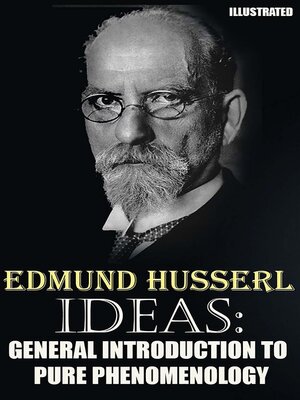
Sign up to save your library
With an OverDrive account, you can save your favorite libraries for at-a-glance information about availability. Find out more about OverDrive accounts.
Find this title in Libby, the library reading app by OverDrive.



Search for a digital library with this title
Title found at these libraries:
| Library Name | Distance |
|---|---|
| Loading... |
"Ideas: General Introduction to Pure Phenomenology" by Edmund Husserl, first published in 1913, is a foundational work in 20th-century philosophy that formally introduces Husserl's mature system of phenomenology. Building on earlier texts like Logical Investigations, this book seeks to establish phenomenology as a rigorous science of consciousness — one that examines the structures of experience without presuppositions. At the heart of Husserl's project is the concept of intentionality — the idea that consciousness is always directed toward something, be it a thought, perception, or emotion. He introduces the phenomenological reduction, a method of "bracketing" or suspending judgment about the existence of the external world to analyze how things appear in pure experience. Through this, Husserl aims to reach the essential truths of phenomena. This volume lays out key distinctions between the natural attitude (our everyday way of seeing the world) and the phenomenological attitude (a reflective, philosophical stance). It explores how objects, time, space, and self-awareness emerge from lived experience, positioning consciousness as the foundation for all meaning and knowledge.







